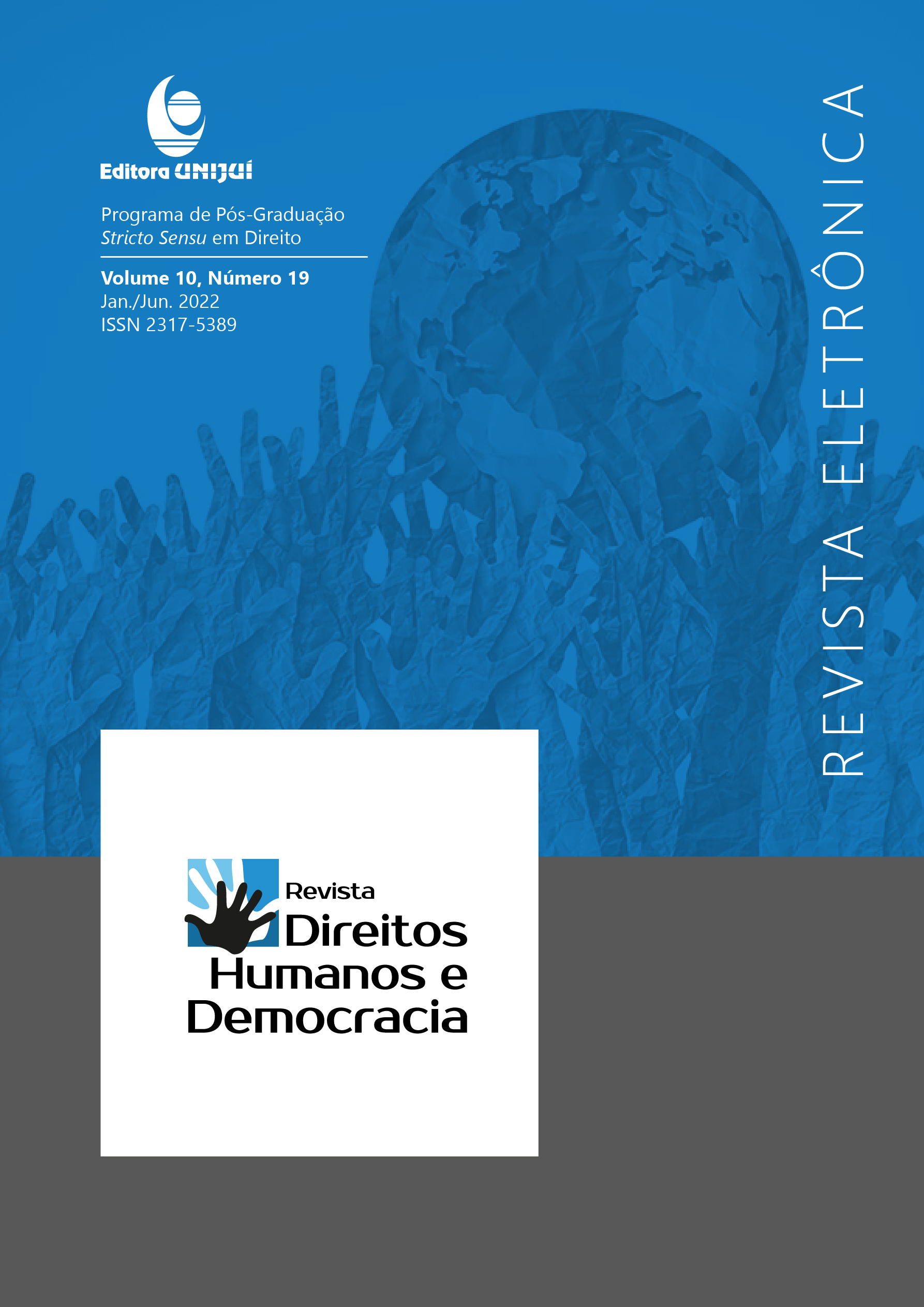The Right to Disconnect during a pandemic
DOI:
https://doi.org/10.21527/2317-5389.2022.19.10963Keywords:
Direito à desconexão; Teletrabalho; Home Office; COVID-19; Dignidade da pessoa humana.Abstract
This article has as its subject the right to disconnect during a pandemic and aims to analyze the need for workers to disconnect, especially during the isolation imposed by the COVID-19 in Brazil. In methodological terms, the research adopted a deductive approach to understand the effects of the lack of disconnection in the life and health of workers, as well as its reflexes in society. The study points out as the main results the need to promote disconnection policies in companies, with regulation by the State, concluding that the right to disconnect is raised to constitutional guarantee, as a right linked to the dignity of the human person to be protected.
Downloads
Published
How to Cite
Issue
Section
License
Copyright (c) 2022 Revista Direitos Humanos e Democracia

This work is licensed under a Creative Commons Attribution 4.0 International License.
By publishing in the Revista Direitos Humanos e Democracia, authors agree to the following terms:
Articles are licensed under the Creative Commons Atribuição 4.0 Internacional (CC BY 4.0), which allows:
Share — copy and redistribute the material in any medium or format;
Adapt — remix, transform, and build upon the material for any purpose, including commercial use.
These permissions are irrevocable, provided the following terms are respected:
Attribution — authors must be properly credited, with a link to the license and indication of any modifications made;
No additional restrictions — no legal or technological measures may be applied that restrict the use permitted by the license.
Notices:
The license does not apply to elements in the public domain or covered by legal exceptions.
The license does not grant all rights required for specific uses (e.g., image rights, privacy, or moral rights).
The journal is not responsible for opinions expressed in the articles, which remain the sole responsibility of the authors. The Editor, with the support of the Editorial Committee, reserves the right to suggest or request modifications when necessary.
Only original scientific articles presenting research results of interest, not previously published or simultaneously submitted to another journal with the same purpose, will be accepted.
References to trademarks or specific products are intended solely for identification purposes and do not imply any promotional endorsement by the authors or the journal.
License Agreement: Authors retain copyright over their articles and grant the Revista Direitos Humanos e Democracia the right of first publication.













